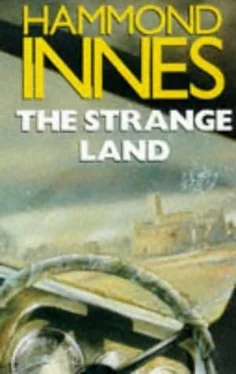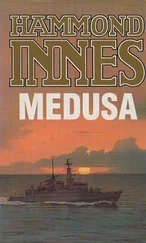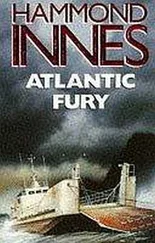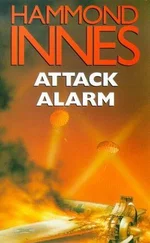Hammond Innes - The Strange Land
Здесь есть возможность читать онлайн «Hammond Innes - The Strange Land» весь текст электронной книги совершенно бесплатно (целиком полную версию без сокращений). В некоторых случаях можно слушать аудио, скачать через торрент в формате fb2 и присутствует краткое содержание. Жанр: Прочие приключения, на английском языке. Описание произведения, (предисловие) а так же отзывы посетителей доступны на портале библиотеки ЛибКат.
- Название:The Strange Land
- Автор:
- Жанр:
- Год:неизвестен
- ISBN:нет данных
- Рейтинг книги:4 / 5. Голосов: 1
-
Избранное:Добавить в избранное
- Отзывы:
-
Ваша оценка:
- 80
- 1
- 2
- 3
- 4
- 5
The Strange Land: краткое содержание, описание и аннотация
Предлагаем к чтению аннотацию, описание, краткое содержание или предисловие (зависит от того, что написал сам автор книги «The Strange Land»). Если вы не нашли необходимую информацию о книге — напишите в комментариях, мы постараемся отыскать её.
The Strange Land — читать онлайн бесплатно полную книгу (весь текст) целиком
Ниже представлен текст книги, разбитый по страницам. Система сохранения места последней прочитанной страницы, позволяет с удобством читать онлайн бесплатно книгу «The Strange Land», без необходимости каждый раз заново искать на чём Вы остановились. Поставьте закладку, и сможете в любой момент перейти на страницу, на которой закончили чтение.
Интервал:
Закладка:
‘Yes,’ Jan said. ‘And Marcel’s letter.’
I didn’t say anything. I was thinking that the only documents establishing his claim to Kasbah Foum were on him at this moment. I didn’t like it. If the guide sent a runner on ahead of us … If Ali knew … I felt a shiver run down my spine. It was cold and very quiet standing there on the edge of that ditch in the palmerie. It was like being in a dead world.
A shadow moved in the darkness. It was our guide, the white of his djellaba almost hidden by the blanket he had wrapped round himself. He led us on along the top of the ditch without a word and soon we caught the faint beat of tam-tams far ahead. The sound was a guide to our progress and as we neared Ksar Foum-Skhira the harsh, — lilting chant of the singers joined the rhythmic beating of the drums. Yaiee-ya Yaiee-ya Yaiee Yai-i… Yaiee-ya Yaiee-ya Yai-ee Yai-i-ee. The chant was repeated over and over again with only slight variations. It was insistent like the drumming of the wind or the singing of a sand storm.
We reached a well with its pole uplifted against the stars and then we were on a beaten track with walls on either side. And when we came out into the open again, the noise of the tam-tams and the singing was suddenly very loud. Aiee-ya Aiee-ya Aiee-yaiee-ya. We were close under the walls of Ksar Foum Skhira now and there were people about. I breathed a sigh of relief. Aiee-ya Aiee-ya Aiee-yaiee-ya.
We crossed an open space and ahead of us, on a slight rise, the darker bulk of the kasbah showed in the darkness. We passed through the arched gateway of an outer wall, crossed an open courtyard of sand and came to the main entrance, barred by a wooden door. Our guide beat upon the wood and the noise seemed very loud, for the kasbah had the stillness of a place that had been deserted for a long time. A kid bleated softly somewhere in the darkness and from near the outer wall came the rude belching of a camel. A light showed through a crack and then the wooden securing bar was lifted and the door was pulled back with a creak of hinges. A swarthy, bearded man, his head swathed in a turban, stared at us suspiciously. He carried a carbide lamp in his hand — an elementary light made of a metal container with a long spout rising from it, at the end of which was a two-inch jet of flame that wavered in the draught.
Our guide explained that we wished to see the Caid. The thick, guttural sounds of the Arab dialect were tossed back and forth between them. ‘My companion,’ I said, indicating Jan, ‘was a friend of Capitaine Duprez. He has a message for Caid Hassan.’
The turbaned porter held the flame high so that he could see us. The light gleamed on his brown, inquisitive eyes. Then he nodded and stood aside for us to enter. The door closed behind us, the wooden securing bar was dropped into place and, with a quick little gesture that was part welcome and part a request to follow him, the keeper of the gate led us into the black cavern of a passageway. From nails on the wall he took two more carbide lights. The place was like an underground tunnel, dank and chill with walls and roof of mud so that it looked as though it had been hewn out of the earth.
We passed a rectangular opening that was a doorway leading to a courtyard. I had a glimpse of stars and the outline of one of the kasbah towers. We turned left here into another passageway. A yellow gleam of light showed at the end of it. It was the entrance to a room and, as we went by, I saw the glow of a brazier and figures huddled round it. The only lights were the carbide flames flickering from their wall hooks. Steps led upwards then — a staircase that followed the square walls of a tower. And suddenly we were out in the open on a roof top. Below us stretched the darkness of the palmerie and away to the right the shadowy bulk of the walled village of Ksar Foum-Skhira, from which gleamed little points of light — the gleam of braziers and flickering flame lights in rooms that had only holes in the walls for windows.
We crossed the roof top and entered the open doorway of another tower. There was a shallow flight of earthen stairs and then we were in a square room with two thick window embrasures, the small, square openings of which were closed by broken wooden shutters. The place was very cold and had a musty smell. It was completely bare. The floor was of hard-packed earth and the walls of dried mud. The ceiling was high, raftered with the soft wood of palm stems. The man who had brought us here lit the two carbide lamps, hung them on hooks provided in the walls and then left us without a word, taking our guide with him.
It was bitterly cold. The temperature was just on freezing and a little wind was driving in through the cracks in the shutters and the carbide flames flickered wildly. ‘They’ll bring cushions and rugs in a minute,’ I said.
Jan nodded, glancing uneasily about him. ‘Can I smoke?’
‘Yes.’
He brought out a packet of cigarettes and lit one. The only sound was the whistle of the wind in the chinks of the shutter and the singing from the village and the beat of the drums, which was so clear that they might have been in the courtyard below. Ai-yai-yee Ai-yai-yee Ya-ee Ya-ee Yai-i.
‘There’s a fire in Ksar Foum-Skhira,’ Jan said.
I went over and peered through one of the broken shutters. In some courtyard of the village flames were flickering in a lurid glow that lit up the corner of a tower and the piled-up walls of some houses. ‘They have to have a fire to heat the drums and so stretch the hides to the required pitch,’ I said.
The drums were beating faster now. The tempo of the singing increased, became shriller and then stopped abruptly. The drums went on for a few seconds and then ceased on a beat. In the sudden silence we heard the murmur of voices below us in the kasbah and then the scuffle of sandals on the stairs. Men crowded into the room, their arms piled with cushions and silks and hand-woven rugs. A big square of carpet was spread out on the earthen floor, the cushions were arranged round it and draped with rugs and silks. A brazier was brought, a red glow of warmth, and stood in the corner. A copper kettle was set on it. A great silver tray was placed on a low table that was barely six inches from the ground. Coloured glasses were carefully arranged and a silver tea chest and a white cone of sugar were placed beside it.
One of the men who had carried these things up was Moha and I reminded him that we were relying upon him to guide us back. He nodded and disappeared with the rest of the men. The room was suddenly empty again. We sat down cross-legged on the cushions and waited.
The minutes ticked slowly by. I found myself wishing the singing would start again in the village. Harsh and primitive though it was, at least it was a reminder that there were human beings around. The kasbah seemed quiet as the grave.
But at last there was movement again on the stairs and then an old man entered, walking slowly. He wore a spotlessly white djellaba of soft wool, the hood neatly arranged to frame his features. His beard was white and rather sparse, cut like a goatee, but extending along the line of the jaw almost to the ears. His skin was pale, far paler than mine, and his eyes were a steely blue. He was of pure Berber stock, unmixed with Arab or any of the desert races that so dilute the Berber blood of the south. ‘Merhba bikum!’ His gesture of greeting had great dignity. He motioned us to sit and he himself sank on to a cushion, folding up neatly and gracefully despite his age. Summoning one of the two men who had entered with him, he bade him make the tea for his guests, at the same time apologising to us in French for not doing it himself. He then made us a little speech of welcome in a frail voice that only occasionally paused to search for the right word. ‘You should have given warning that you were coming to visit me,’ he finished reproachfully. ‘I would have arranged a difa for you.’
Читать дальшеИнтервал:
Закладка:
Похожие книги на «The Strange Land»
Представляем Вашему вниманию похожие книги на «The Strange Land» списком для выбора. Мы отобрали схожую по названию и смыслу литературу в надежде предоставить читателям больше вариантов отыскать новые, интересные, ещё непрочитанные произведения.
Обсуждение, отзывы о книге «The Strange Land» и просто собственные мнения читателей. Оставьте ваши комментарии, напишите, что Вы думаете о произведении, его смысле или главных героях. Укажите что конкретно понравилось, а что нет, и почему Вы так считаете.












